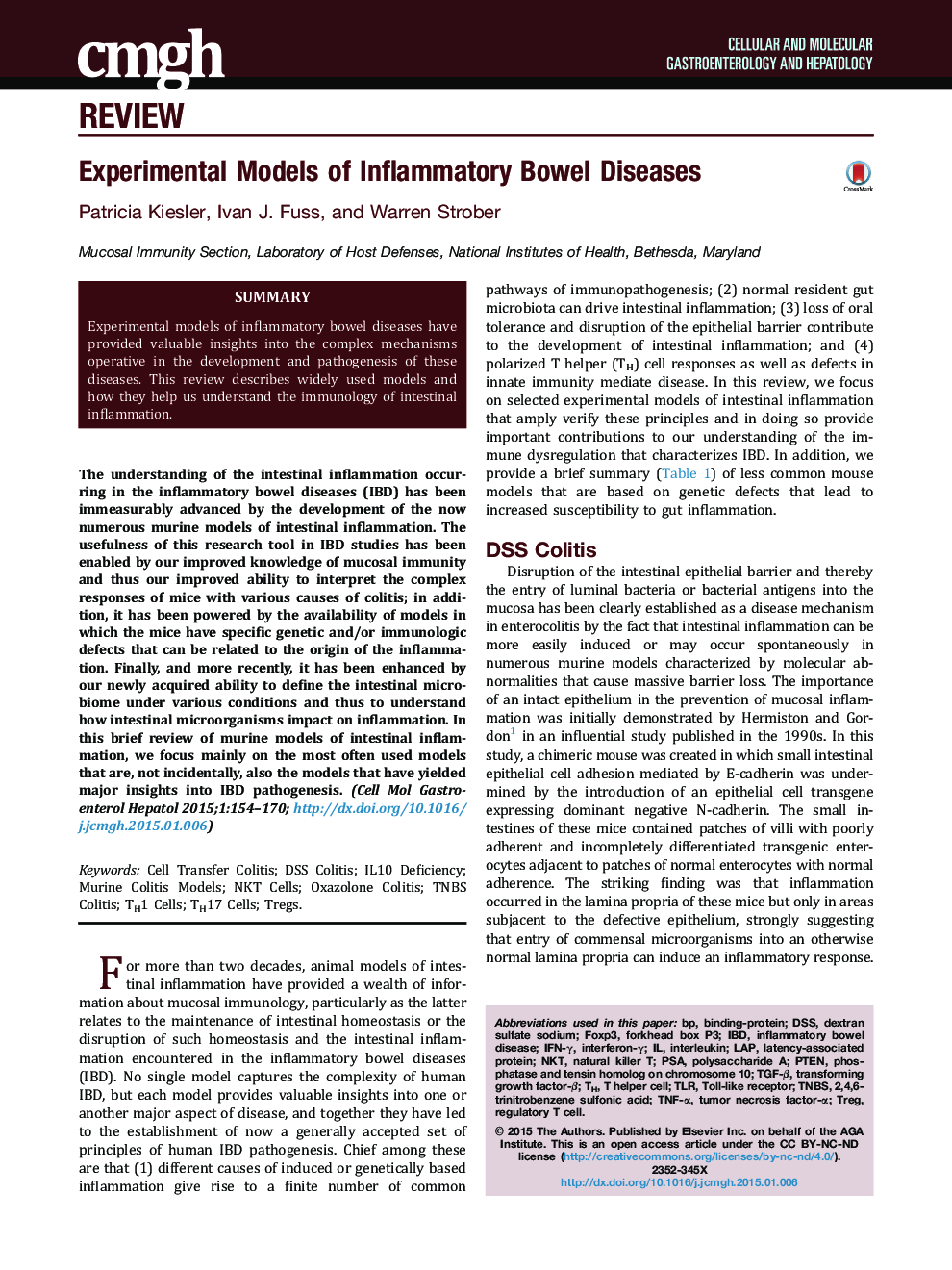| Article ID | Journal | Published Year | Pages | File Type |
|---|---|---|---|---|
| 2041160 | CMGH Cellular and Molecular Gastroenterology and Hepatology | 2015 | 17 Pages |
The understanding of the intestinal inflammation occurring in the inflammatory bowel diseases (IBD) has been immeasurably advanced by the development of the now numerous murine models of intestinal inflammation. The usefulness of this research tool in IBD studies has been enabled by our improved knowledge of mucosal immunity and thus our improved ability to interpret the complex responses of mice with various causes of colitis; in addition, it has been powered by the availability of models in which the mice have specific genetic and/or immunologic defects that can be related to the origin of the inflammation. Finally, and more recently, it has been enhanced by our newly acquired ability to define the intestinal microbiome under various conditions and thus to understand how intestinal microorganisms impact on inflammation. In this brief review of murine models of intestinal inflammation, we focus mainly on the most often used models that are, not incidentally, also the models that have yielded major insights into IBD pathogenesis.
